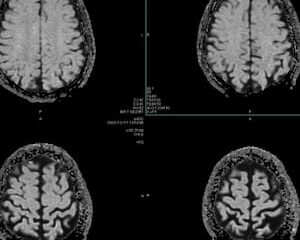Health
Strategies for Overcoming Post-Breakup Insomnia: Expert Tips

Experiencing insomnia after a breakup is a common challenge many individuals face. Following the end of a long-term relationship, many find it difficult to fall asleep or stay asleep, leading to significant distress. The absence of a bed partner, who may have been associated with comfort and relaxation, can disrupt sleep patterns and exacerbate feelings of loneliness.
Understanding Post-Breakup Insomnia
The mental and emotional turmoil that often accompanies a breakup can lead to acute insomnia, which affects approximately one-third of adults annually. According to mental health experts, this type of insomnia is particularly prevalent following significant relationship changes. The brain forms associations between environments and behaviors; therefore, the familiar presence of a partner can be linked to a sense of safety and restful sleep. When that presence is gone, it can result in unsettled nights.
Research indicates that disruptions in sleep patterns can have a ripple effect on overall health. Sleep is crucial for mental and physical well-being, and chronic insomnia may lead to increased anxiety and depression. Acknowledging this connection is the first step toward recovery.
Practical Tips for Better Sleep
There are several strategies individuals can implement to improve sleep quality after a breakup. Establishing a consistent bedtime routine is essential. Engaging in calming activities such as reading, meditating, or taking a warm bath can signal to the body that it is time to wind down. Creating a dedicated sleep environment—dark, quiet, and cool—also plays a vital role in promoting better sleep.
Additionally, limiting screen time before bed can be beneficial. The blue light emitted from devices can interfere with the body’s natural sleep-wake cycle. Instead, consider listening to soothing music or a podcast that encourages relaxation.
Physical activity is another critical factor. Regular exercise has been shown to enhance sleep quality. However, it is advisable to avoid vigorous workouts close to bedtime, as they may have the opposite effect.
Seeking social support is equally important. Connecting with friends and family can alleviate feelings of isolation. Sharing experiences and emotions with trusted individuals can provide comfort during this challenging time.
Finally, if insomnia persists, consulting a healthcare professional is recommended. A doctor can offer tailored advice and, if necessary, discuss treatment options that may include cognitive behavioral therapy for insomnia (CBT-I), which has proven effective for many individuals.
In summary, while post-breakup insomnia can be a challenging hurdle, there are actionable steps that can be taken to reclaim restful nights. By understanding the nature of insomnia and adopting practical strategies, individuals can improve their sleep and overall well-being during this transitional period.
-

 World2 weeks ago
World2 weeks agoPrivate Funeral Held for Dean Field and His Three Children
-

 Top Stories2 weeks ago
Top Stories2 weeks agoFuneral Planned for Field Siblings After Tragic House Fire
-

 Sports3 months ago
Sports3 months agoNetball New Zealand Stands Down Dame Noeline Taurua for Series
-

 Entertainment3 months ago
Entertainment3 months agoTributes Pour In for Lachlan Rofe, Reality Star, Dead at 47
-

 Entertainment2 months ago
Entertainment2 months agoNew ‘Maverick’ Chaser Joins Beat the Chasers Season Finale
-

 Sports3 months ago
Sports3 months agoSilver Ferns Legend Laura Langman Criticizes Team’s Attitude
-

 Sports1 month ago
Sports1 month agoEli Katoa Rushed to Hospital After Sideline Incident During Match
-

 World3 weeks ago
World3 weeks agoInvestigation Underway in Tragic Sanson House Fire Involving Family
-

 Politics2 months ago
Politics2 months agoNetball NZ Calls for Respect Amid Dame Taurua’s Standoff
-

 Top Stories2 weeks ago
Top Stories2 weeks agoShock and Grief Follow Tragic Family Deaths in New Zealand
-

 Entertainment3 months ago
Entertainment3 months agoKhloe Kardashian Embraces Innovative Stem Cell Therapy in Mexico
-

 World4 months ago
World4 months agoPolice Arrest Multiple Individuals During Funeral for Zain Taikato-Fox

















